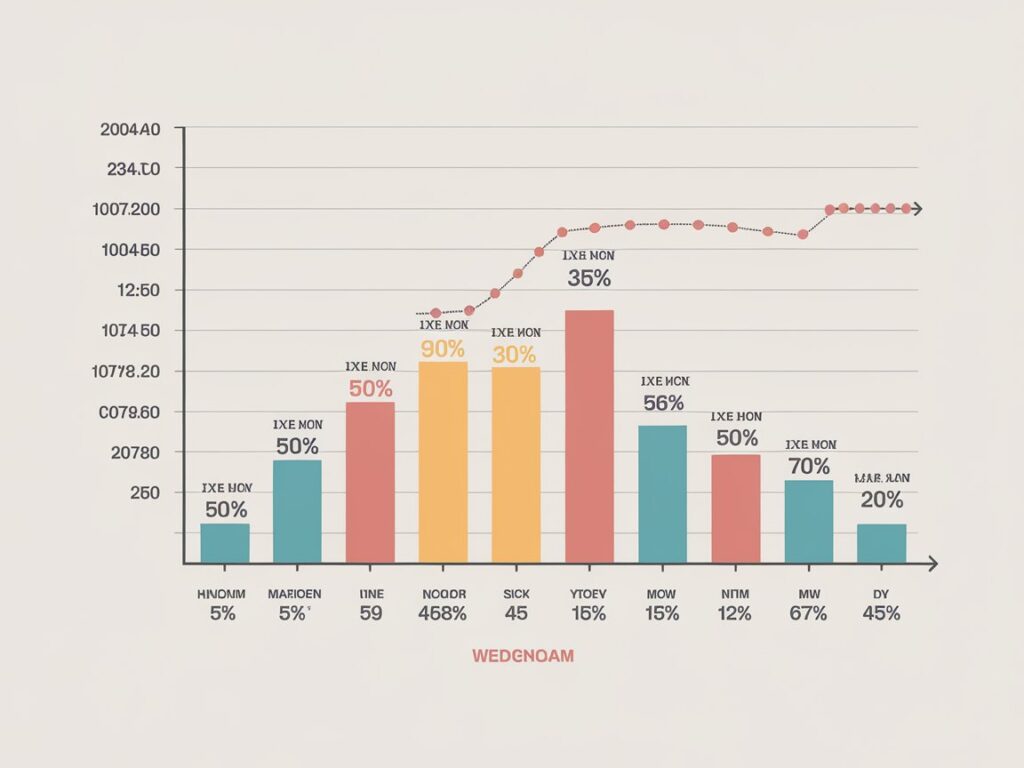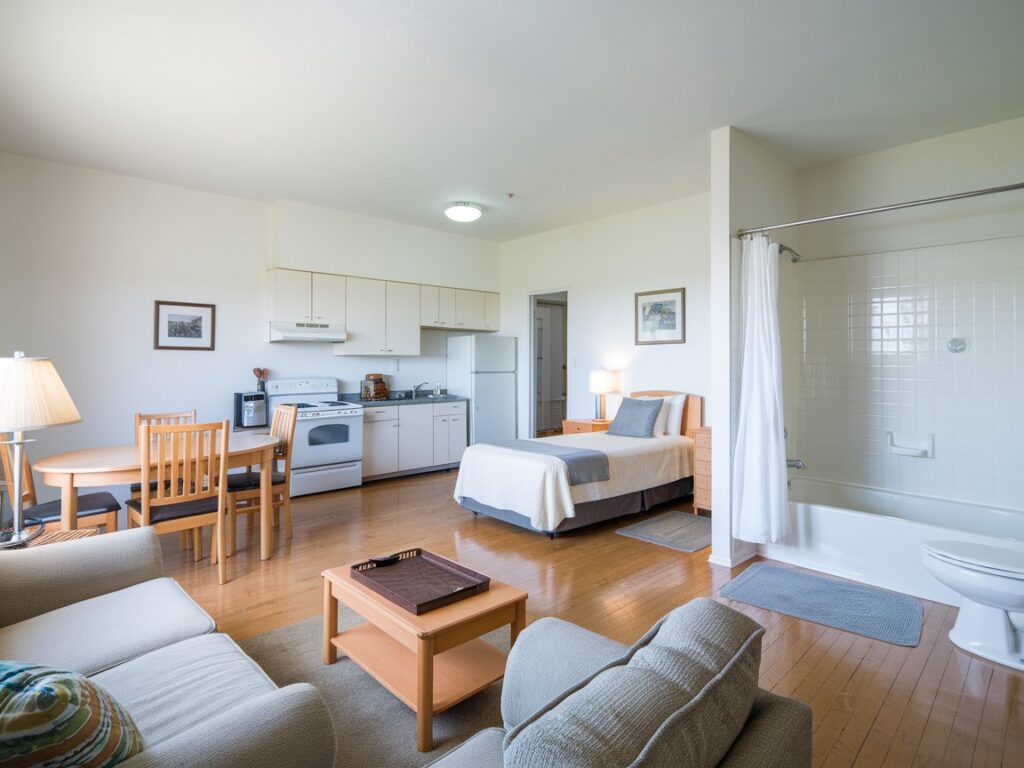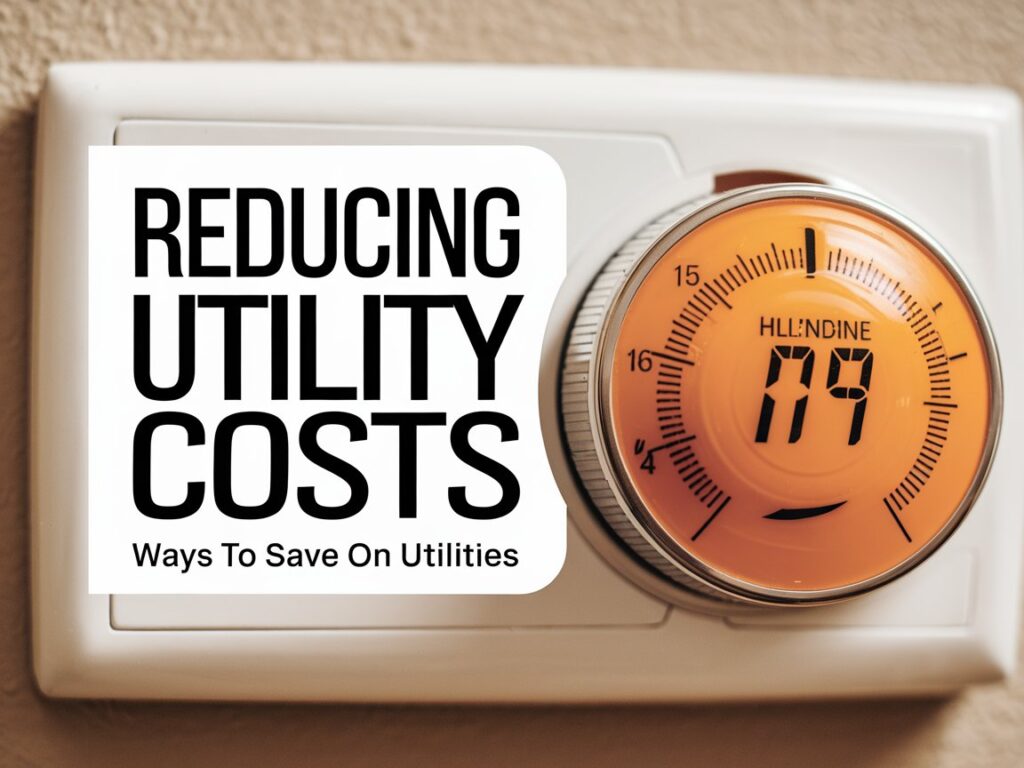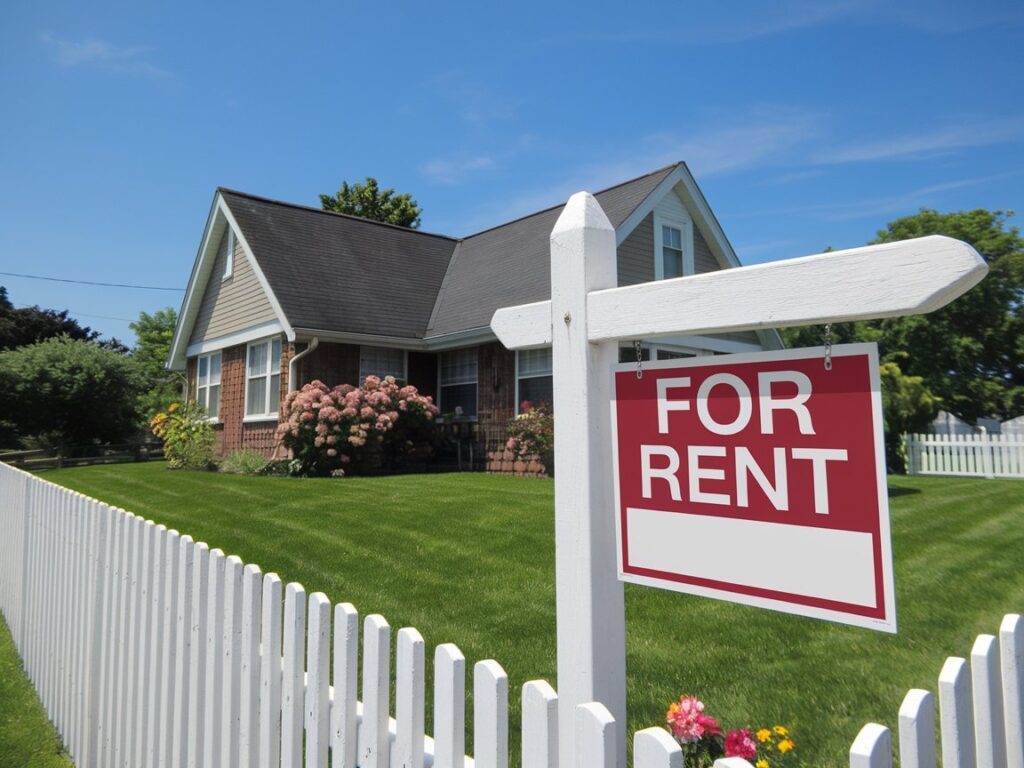In a world where rent prices continue to rise, finding effective ways to save money on rent while renting is crucial for many tenants.
Whether you’re living alone in a one-bedroom apartment or sharing a two-bedroom with a roommate, understanding your rent payments and the rental market is essential for trying to save.
This article will provide you with practical tips to save money on rent in 2026, so you can manage your finances better and keep more cash in your pocket while trying to save.
Understanding Rent Payments
To effectively save money on rent, it’s vital to understand the various factors that influence rent prices.
These factors include location, the condition of the property, and local demand.
For instance, living in a downtown area generally means paying higher rent compared to suburban neighborhoods.
The national average rent-to-income ratio is around 30%, but in expensive cities like New York, this can skyrocket to 68%.
Also, the balance of supply and demand affects rental prices; in a competitive rental market, rent could increase significantly.
Lastly, the overall economic climate, including inflation rates and interest rates, plays a critical role in determining how much you pay for rent.

What Influences Rent Prices?
Several elements influence the rent price you encounter when searching for an apartment.
The proximity to amenities, public transportation, and employment opportunities can lead to higher rental costs.
Property managers and landlords may charge more for properties that are well-maintained or recently renovated.
Additionally, seasonal changes in demand can also affect rent prices; for example, during peak moving seasons, rental prices may rise due to increased competition among tenants.
Understanding these dynamics can help you find ways to save on rent and negotiate better terms with your landlord, which is crucial when you’re trying to save money.
The Importance of a Good Credit Score
A good credit score is paramount when you’re trying to secure a rental property.
It demonstrates to landlords that you are a reliable tenant who can pay rent on time.
Typically, a credit score above 700 is considered good, giving you leverage to negotiate lower rent or better lease terms.
If your score is below 600, you may find it more challenging to secure the apartment you want.
Improving your credit score can involve timely bill payments, reducing debts, and keeping a low credit utilization ratio, which may help when renting with a credit card.
By doing so, you can save some money and potentially lower your monthly rent obligations, which is especially helpful for those trying to save.
How to Calculate Your Rent Budget
Calculating your rent budget is crucial for effective financial management.
One popular approach is the 30% rule, which suggests that no more than 30% of your gross income should be spent on rent.
For instance, if your monthly income is $4,000, aim for a rent payment of about $1,200 to ensure you’re trying to save for other expenses.
Alternatively, the 50/30/20 budget rule can help you allocate your finances wisely by reserving 50% for needs, 30% for wants, and 20% for savings.
By analyzing your total monthly income and existing expenses, you can identify a realistic budget that enables you to save money while renting and plan for future goals, including your month’s rent.
Finding Affordable Rentals

Tips to Save Money on Rent
When it comes to finding affordable rentals, there are several strategic tips to save money on rent that can make a significant difference.
One effective way to save is by negotiating your lease terms, especially if you have established a reliable history as a tenant.
Researching the rental market allows you to present your landlord with data that could convince them to lower your monthly rent, which is vital if you’re trying to save money.
Additionally, don’t overlook the potential of move-in specials; many landlords offer reduced security deposits or waived application fees to attract renters.
Timing your move during the off-peak season, such as winter, can also yield lower rental prices due to decreased demand, helping you save some money.
Finally, consider exploring neighborhoods that offer lower rent but still align with your lifestyle needs.
How to Negotiate Your Lease
Negotiating your lease can be a powerful way to lower rent and secure better terms.
Start by thoroughly researching comparable properties in your area to understand current market rates.
With this information in hand, approach your landlord and present your findings to advocate for a reasonable reduction in your rent price.
Offering concessions, such as signing a longer lease or taking care of minor maintenance issues, can make your proposal more appealing.
Remember, landlords often prefer stable tenants, so highlighting your reliability as a renter can further enhance your negotiating position, especially if you’re willing to negotiate rent.
This proactive approach not only helps you save on rent but also fosters a positive relationship with your landlord.
Best Websites for Finding Rentals
Utilizing online platforms is one of the best ways to find affordable rentals in today’s digital age.
Websites like Zillow, Realtor.
com, and Apartments.
com enable you to filter listings based on your desired price range, location, and amenities, making your search for an apartment more efficient.
Local classified ads and community boards can also reveal hidden gems that might not be listed on major sites.
Additionally, engaging with social media groups dedicated to housing can uncover listings that are often overlooked and could save you a lot on your monthly rent.
Regularly checking these platforms keeps you informed about new opportunities and rental price trends, allowing you to make informed decisions and potentially secure lower rent.
Roommate Considerations

Benefits of Finding a Roommate
Sharing your living space with a roommate presents a significant ways to save money on rent.
With the average rent for a one-bedroom apartment in the U.S. at approximately $1,505, moving into a two-bedroom can lower each person’s monthly rent to around $931, saving nearly $574 monthly.
Beyond just rent payments, roommates can also split utility costs, groceries, and other living expenses, enhancing overall savings.
However, it’s essential to choose a compatible roommate to ensure a harmonious living environment.
Establishing clear agreements on responsibilities and payments can prevent misunderstandings, making shared living a financially smart choice.
How to Find a Compatible Roommate
Finding a compatible roommate involves assessing lifestyle preferences and financial stability to ensure a smooth living arrangement.
Begin by discussing expectations regarding cleanliness, noise levels, and social habits to find common ground.
Utilize platforms like Roommates.
com or Craigslist to connect with potential roommates and conduct interviews to gauge compatibility.
It’s also advisable to check references or previous renting history to ensure reliability.
Establishing clear agreements on rent and utility payments upfront can prevent future conflicts, making it easier for both tenants to manage their finances effectively while living together.
Tips for Sharing Expenses and Making It Work
To make sharing expenses work smoothly and save some money, create a shared budget outlining each person’s contributions to rent, utilities, and groceries.
Utilizing apps like Splitwise can help track shared expenses and ensure transparency between roommates.
Regular communication about changes in financial situations or unexpected living arrangements is crucial to avoid misunderstandings.
Establishing house rules regarding guests and shared spaces can also foster a positive living environment, making it easier for both tenants to adapt to their new shared lifestyle and find ways to save effectively.
Reducing Utility Costs

Ways to Save on Utilities
Americans typically spend an average of $429 per month on basic utilities, making it crucial to find ways to save.
Heating and cooling often account for a significant portion of this expense, so adjusting your thermostat to energy-efficient levels—78 degrees in summer and 68 in winter—can yield substantial savings.
Additionally, consider investing in energy-efficient appliances and utilizing smart power strips to minimize energy waste.
Regularly reviewing utility providers and negotiating for better rates can also lead to savings, helping renters lower their overall monthly expenses.
Understanding Your Utility Lease Terms
Understanding your utility lease terms is essential for managing costs effectively while renting.
Some rental agreements include utilities in the rent, while others require tenants to pay specific services separately.
Carefully read your lease to identify which utilities you are responsible for and any caps on usage.
Familiarizing yourself with your landlord’s policies regarding utility payments is crucial, as it ensures you are aware of any penalties for late payments.
This knowledge can help tenants avoid unexpected costs and manage their finances more efficiently.
Energy-Efficient Upgrades to Consider
Investing in energy-efficient upgrades can significantly reduce utility costs and lead to long-term savings.
Consider installing LED light bulbs, programmable thermostats, and energy-efficient appliances to maximize efficiency.
Sealing windows and doors can also help prevent drafts, reducing heating and cooling expenses.
Discussing potential upgrades with your landlord can be beneficial, as some may be willing to share the costs or permit improvements that benefit both parties, especially if you’re willing to negotiate rent.
By taking these steps, tenants can enhance their living environment while effectively managing their monthly utility expenses.
Managing Security Deposits

Understanding Security Deposit Laws
Understanding security deposit laws is essential for both tenants and landlords.
These laws can vary significantly by state, but typically, landlords are allowed to charge a security deposit equivalent to one or two months’ rent.
Familiarizing yourself with these regulations can help you understand your rights as a renter, particularly regarding the return of your security deposit.
After moving out, landlords are generally required to return the deposit within a specified timeframe, minus any deductions for damages.
Knowledge of local laws can help you navigate potential disputes and ensure a smooth transition when living in a rental property.
How to Get Your Security Deposit Back
To maximize the chances of getting your security deposit back, it’s crucial to document the property’s condition both when you move in and out, especially before your move-in date.
Take comprehensive photos of any existing damages and keep meticulous records of all communications with your landlord regarding repairs or issues during your tenancy.
Before moving out, make sure to clean the property thoroughly and address any minor repairs that may detract from your security deposit return, as you’re already trying to save money.
Providing your landlord with a forwarding address can facilitate the process of returning your deposit, ensuring that you receive your funds promptly and without complications.
Negotiate Lower Security Deposits
Negotiating lower security deposits can be an effective way to save money upfront when renting a property.
Many landlords may be open to negotiation, especially if you have a strong rental history or excellent credit.
Consider proposing to pay a slightly higher monthly rent in exchange for a reduced security deposit.
Additionally, inquire about alternatives like security deposit insurance, which allows you to pay a nominal monthly fee instead of a large upfront deposit.
This can help you keep more cash in your pocket while still securing the rental you desire, making it a smart financial strategy.
Creative Ways to Save on Rent

Consider Short-Term Rentals Like Airbnb
Renting out an extra room through platforms like Airbnb can be a lucrative best ways to save money on rent.
This option allows you to generate additional income that can significantly offset your monthly rent payments.
However, it’s vital to check your lease agreement for any restrictions on short-term rentals and discuss your plans with your landlord to avoid potential conflicts, particularly if you’re renting out an extra bedroom.
This strategy is particularly beneficial for renters who travel frequently or have spare space that is otherwise underutilized.
By leveraging short-term rentals, you can enhance your financial flexibility and manage your living expenses more effectively.
How to Use Seasonal Discounts
Taking advantage of seasonal discounts can be an best ways to save money on rent.
Many landlords lower their rental prices during the off-peak season, which typically occurs in winter when demand is lower.
By being proactive and searching for rental deals during these times, you can secure a better rate.
Additionally, consider signing a longer lease to lock in reduced prices, as this may be attractive to landlords looking for stable tenants.
Some rental agencies also offer promotional discounts or incentives for new tenants during specific times of the year, providing further opportunities to save.
Exploring Rent-to-Own Options
Exploring rent-to-own options can be a savvy way to save money while potentially securing a future home.
This arrangement allows renters to build equity while living in the property, typically by paying a slightly higher rent that contributes toward a future purchase price.
Rent-to-own agreements can benefit those looking to buy a home eventually but who may not have sufficient upfront capital for a down payment, allowing you to save for your month’s rent.
It’s crucial to understand the terms of the agreement, including the rental period duration and how the purchase price is determined, ensuring that this option aligns with your long-term financial goals.

FAQs About Save Money on Rent
Key Takeaways
- Rent can take up a large part of your budget.
- Consider getting a roommate to split costs.
- Create a budget to track your expenses.
- Negotiate your rent to potentially lower it.
- Choose a less expensive neighborhood to save money.
In 2026, saving money on rent is achievable with smart strategies. Understand what affects rent prices and leverage your credit score to negotiate better terms.
Explore affordable neighborhoods and consider having a roommate to lower costs.
Implement energy-efficient practices to reduce utility bills and know your rights about security deposits to ensure you get your money back.
By following these tips, you can effectively manage your rental expenses and enjoy a more secure financial future.




